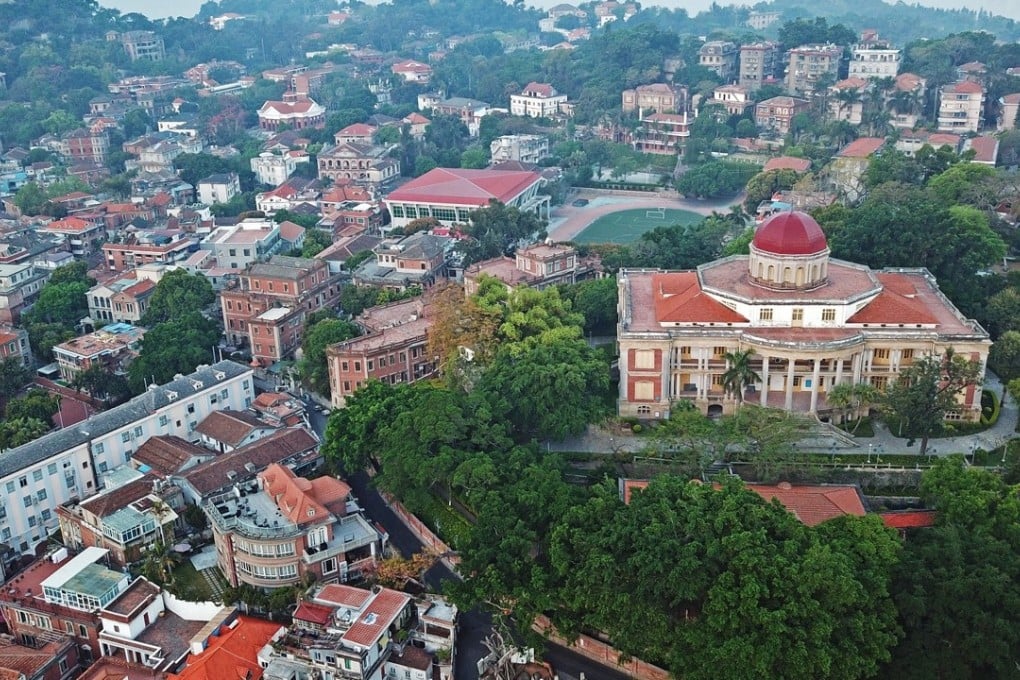All aboard Gulangyu island ferry for ‘Piano Island’
Municipal government limits tourist numbers to around 35,000 per day

Gulangyu island, a five-minute ferry ride from Xiamen proper, is the most popular tourist destination in the city.
The small island is a Unesco World Heritage Site, a 5A tourist destination and one of the top 10 tourist destinations in Fujian province.
Gulangyu was a concession to Western imperial powers following the opium wars, and hosted as many as a dozen consulates in the late 19th and early 20th century. The architecture is mostly Victorian, and the influence of the old European settlement can be seen in the buildings and streets, and a culture of classical music that permeates the entire district.
Unesco praises the district for special cultural contributions particularly a new style of architecture: “Kulangsu [Gulangyu] is an exceptional example of the cultural fusion that emerged from [Sino-foreign] exchanges, which remain legible in its urban fabric. There is a mixture of different architectural styles including Traditional southern Fujian style, Western classical revival style and Veranda colonial style. The most exceptional testimony of the fusion of various stylistic influences is a new architectural movement, the Amoy-deco style, which is a synthesis of the modernist style of the early 20th century and art deco.”
This style and the culture which created it have been preserved all these years by the simple fact that Gulangyu can only be reached by ferry. Later, as the value of this historic island became clear, strict controls were put in place by the municipal government to maintain the integrity of Gulangyu, and limit the number of tourists per day to around 35,000.
The cultural influence from the early 19th and 20th centuries has also resulted in Gulangyu having the most pianos per capita in China, as well as being host to the Piano Museum. Several renowned classical musicians have emerged from Gulangyu, including pianist and composer Yin Chengzong, violist Jing Yang and the pianist Xu Feiping. The prevalence of pianos and classical musicians has earned Gulangyu the nickname “Piano Island”.